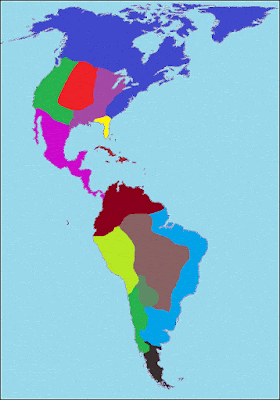Alternative history: What if Pan-Africanism succeeded?
Alternative history: What if Pan-Africanism succeeded? Context Pan-Africanism is an ideology which demands for all or some of the African states to unite. The pioneer was Marcus Garvey from Jamaica. In the 20th century, European powers were competing to gain their territory for colonies in Africa and divided the continent into their own colonies. At that time, the ideology of Pan-Africanism emerged, but not only that, a religious movement called Rastafarianism, which has the belief that Haile Selassie was the Messiah and Ethiopia is the promised land, is established in Jamaica. At the end of the 19th century until the beginning of the 20th century, many African countries gained their independence. At that time, some African leaders, such as Kwane Nkrumah, Julius Nyerere, Thomas Sankara and Moammar Gaddafi, advocated pan-Africanism, but they did not succeed in uniting all or some of the countries of Africa. But what if in this alternative timeline there was someone who succeeded uniting...
